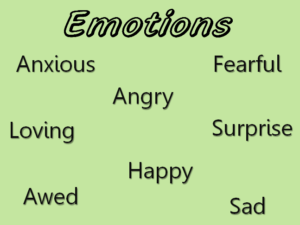Motivational therapy can be used to help people overcome mental illnesses, addiction, and other debilitating problems. This type of therapy is tailored according to the needs of the client, and it centers on building up one’s motivation for dealing with life’s adversities. It might sound simple, but this type of therapy has been successful in helping many people improve their lives.
Contents
- 1 What Is Motivational Therapy?
- 2 What Does Motivational Therapy Help with?
- 3 How Does Motivational Therapy Work?
- 4 What Other Therapies Does Motivational Therapy Relate to?
- 5 Benefits of Motivational Therapy
- 6 Motivational Therapy Techniques
- 7 Principles Of Motivational Therapy
- 8 Problems With Motivational Therapy
- 9 How To Practice Motivational Therapy?
- 10 Conclusion
What Is Motivational Therapy?
 Motivational therapy is a type of therapy that helps people to overcome various mental illnesses, addictions, and other problems. This therapy is tailored to the individual, and it focuses on building up one’s motivation to deal with life’s challenges. It has been shown to be successful in helping many people improve their lives.
Motivational therapy is a type of therapy that helps people to overcome various mental illnesses, addictions, and other problems. This therapy is tailored to the individual, and it focuses on building up one’s motivation to deal with life’s challenges. It has been shown to be successful in helping many people improve their lives.
Motivational therapy is based on the idea that we all have two types of motivational states: extrinsic and intrinsic. Extrinsic motivation comes from outside rewards, such as money or grades at school. Intrinsic motivation comes from within and is the desire to learn and grow as a person, and satisfy one’s own needs and desires.
In motivational therapy, you build up intrinsic motivation through learning more about yourself and experimenting with various ways to satisfy your needs and wants. The purpose of this is to create a sense of self-confidence in taking on challenges, rather than succumbing to the pressures of others. Eventually, you become able to derive satisfaction from fulfilling tasks, rather than doing them in order to receive outside rewards.
Motivational therapy is based on the idea that many mental ills are caused by an imbalance between extrinsic and intrinsic factors in our lives. One of the main goals is to work on shifting motivation from extrinsic to intrinsic, thus helping individuals overcome various problems. Extrinsic motivation is considered to be more fragile, while intrinsic motivation is stronger and can withstand life’s challenges.
What Does Motivational Therapy Help with?
Motivational therapy has been shown to be effective in dealing with various mental illnesses, addictions, depression/low self-esteem, eating disorders, high-risk behaviors in teens, etc. It has also shown promise when used along with pharmaceutical treatments for depression and other problems.
Mental Illnesses
 Motivational therapy can be helpful for treating many mental illnesses due to its focus on addressing the underlying issues that are behind the problem, rather than just targeting one symptom of a disorder. It helps individuals to overcome negative self-esteem, help them feel better about themselves, boost confidence in their abilities, learn how to deal with negative emotions/thoughts/feelings, and more.
Motivational therapy can be helpful for treating many mental illnesses due to its focus on addressing the underlying issues that are behind the problem, rather than just targeting one symptom of a disorder. It helps individuals to overcome negative self-esteem, help them feel better about themselves, boost confidence in their abilities, learn how to deal with negative emotions/thoughts/feelings, and more.
Disorders
Motivational therapy is particularly helpful for treating eating disorders, as this type of treatment can help to overcome any underlying issues that are causing the problem. It has also been shown to be effective in helping people stop smoking, drinking alcohol excessively, developing healthy weight control practices, and more.
Addiction
As far as addictions are concerned, motivational therapy can help to treat hard-core drug addiction with its focus on addressing underlying issues that may be driving a person to abuse drugs. It is one of the treatments for compulsive gambling and alcoholism that have been shown to be effective in some cases.
School/Career Issues
Motivational therapy also helps with school and career issues. It can help to improve academic success and relationships with teachers and parents, as well as increase job satisfaction. This type of therapy may be helpful in treating problems such as test anxiety, low motivation, depression/low self-esteem that causes poor performance at work or school, etc.
How Does Motivational Therapy Work?
Motivational therapy is generally based on the idea that external rewards can have drawbacks, therefore it focuses on developing intrinsic motivation. The treatment uses different mind-body exercises to help individuals build up their sense of self-confidence and learn how to derive satisfaction from achieving goals/satisfying desires rather than relying on outside factors for motivation.
What Other Therapies Does Motivational Therapy Relate to?
Motivational therapy is one of the most “client-centered” therapies. Other types of therapies that are perhaps most similar to MOT include person-centered therapy, Rogerian psychotherapy, client-centered counseling, etc. All of which are based on the ideas of Carl Rogers. These differ from CBT in that they focus on the individual rather than addressing specific issues.
Motivational therapy is also related to other types of therapy such as Adlerian therapy, existential therapy, social learning theory, etc. But MOT uses many different techniques compared to these therapies and focuses more on improving how a person feels about themselves and their lives/situations.
Motivational Therapy Vs Cognitive Behavioral Therapy

Motivational therapy and cognitive-behavioral therapy (CBT) both use different techniques to achieve a specific goal, but there are some basic differences between the two. While CBT is focused on helping people change their thoughts and behaviors that contribute to anxiety/depression/eating disorders, etc., motivational therapy takes a more holistic approach. It focuses on the way individuals are feeling about themselves and their lives, rather than focusing solely on changing thoughts or behaviors. For this reason, motivational therapy is considered to be one of the more “client-centered” therapies available today.
Benefits of Motivational Therapy
 Motivational therapy has many benefits.
Motivational therapy has many benefits.
- Focus on goals
- Short term
- De-addiction
- Affordable
- Mental problems treatment
First, it helps individuals to build up their motivation by focusing on what they can achieve rather than on controlling/changing thoughts/feelings/behaviors. Second, this type of therapy is often quite short-term compared to other types of therapy, making it a good choice for people who don’t have a lot of time to devote to therapy or who want something more affordable. It can also help a person feel better about themselves after just one session. That is often amazing for someone who has been struggling with an issue for some time.
Finally, motivational therapy has been shown to be effective in a wide range of situations, from addiction and depression/anxiety to school and work issues. Motivational therapy may not be for everyone, but there are many people who have benefitted from this approach to therapy.
Motivational Therapy Techniques
There are many different techniques used in motivational therapy. Some of the most common include:
External rewards vs Intrinsic motivation
In this exercise, participants will be encouraged to use only internal motivation for 30 days, without using rewards or punishments. Then, they will be asked to try the opposite approach for 30 days. After this exercise, the individual will learn how to mix both techniques together.
Common ground
This is an activity where three people meet to discuss a problem that one of them is facing. The other two people will listen without offering advice or ideas. And after the meeting, they mutually discuss how things are and what they are learning.
Competing with yourself
 This activity requires you to set up a competition between your old self and your new one. For example, if you’re trying to lose weight, challenge yourself by asking what would have to happen for you to win the competition. For example, if your old self would eat a whole pint of ice cream in one sitting, what has to happen for your new self (the one who is trying to lose weight) to win? Then, make it happen!
This activity requires you to set up a competition between your old self and your new one. For example, if you’re trying to lose weight, challenge yourself by asking what would have to happen for you to win the competition. For example, if your old self would eat a whole pint of ice cream in one sitting, what has to happen for your new self (the one who is trying to lose weight) to win? Then, make it happen!
Journaling
Journaling is also a part of motivational therapy in many different ways. A person can keep a record of progress, set goals, or just write his/her feelings for personal reflection.
Self-talk
This is a way of using self-talk/internal dialogue to empower yourself and improve motivation instead of letting self-doubt hold you back. When we talk to ourselves, we talk either to change ourselves or to reinforce ourselves. But when we are in doubt, when it is painful for us to remain at the stage where we are. Then the behavior becomes easy—it becomes automatic. We use self-talk to support our behavior to make it more comfortable… not much different from the way in which Pavlov’s dogs learned to salivate when they heard a bell.
Slogans
The individual selects a motivational slogan that they can refer to when they are feeling depressed or anxious. The slogan should be one that is short and easy to remember but has positive meaning for the individual. For example, “All things work together for good” (quoted from Romans 8:28).
Affirmations

These are brief statements that one says in repetition with the purpose of improving self-esteem. They are present tense statements but are about possible future behaviors or goals that the person wants to achieve. An example is “People loves me”(the person is expressing the love he/she may get in the future).
Decisional balance
This is a list of the pros and cons of an action that the individual wants to take. For this, they rank each item on the list, with 1 being the most appealing “pro” or least harmful/least restrictive “con”. Then, they can compare these lists to help them choose what will be the best course of action.
Motivational Interviewing
This is a counseling style that encourages clients to change their behavior. Usually by discussing what is stopping them from taking that step and then finding ways around those barriers. It allows for self-discovery, personal responsibility, and mutual collaboration between the therapist and the client.
Principles Of Motivational Therapy
The principles of motivational therapy involve changing a person’s behavior by recognizing their personal goals and values, identifying environmental barriers, and selecting the appropriate course of action.
Expressing Empathy
This is the therapist’s ability to understand and accept that a person’s way of thinking, feeling, or behaving makes sense given their situation. Expressing empathy helps establish rapport with the client and validates their experiences. The participants finds that it was helpful to be able to discuss what they were going through without fear of judgment.
Sharing Emotional Responses
 This is the therapist’s ability to communicate their own feelings and responses to what a client has disclosed. The participants reported that it was helpful when the therapists expressed an understanding of what they were going through.
This is the therapist’s ability to communicate their own feelings and responses to what a client has disclosed. The participants reported that it was helpful when the therapists expressed an understanding of what they were going through.
“providing a summary of a session, a client’s problems, or his/her progress in therapy” – can lend insight into the client’s point of view or feelings. And can verify that the therapist understands what they are going through.
Encouraging Participation
This is when therapists encourage clients to take part in decisions about their behavior (for example, what goals they will focus on). And guide clients towards choosing options that fit with their personal goals and values. The participants agreed that it was helpful to be part of the decision-making process and create an action plan based on their desires and goals.
Avoiding Arguments
This is when therapists avoid arguments with clients about their behavior or try to convince them to change. The participants find that getting coaching on how to resist persuasive messages helps them maintain self-control over their own decisions.
“helping the client recognize his/her own potential for positive change” – Helping clients increase Self-efficacy by continually demonstrating the positive effects of healthy behavior, acknowledging their strengths and successes, and by offering ongoing support.
Problems With Motivational Therapy

Although motivational therapy is helpful for most people. There are also a few potential problems that can occur. One problem is that the therapist may not be able to express empathy or share emotional responses in a way that the client understands or feels comfortable with. This can make it difficult for the therapist to build rapport with the client and hinder the therapeutic process. Another problem is that the therapist may be too encouraging and push the client to take actions that they are not ready or willing to take. This can result in the client feeling overwhelmed or discouraged, and lead to them discontinuing treatment.
Motivational therapy is based on the idea that talking to yourself without interfering is a good way for motivating oneself. This might sound strange or self-explanatory, but there’s more to this than it appears at first glance.
Motivational therapy is based on the idea that you can control your own behavior by talking to yourself without interfering. This might sound strange or self-explanatory, but there are more steps to this concept than appear at first glance.
How To Practice Motivational Therapy?

First of all, it’s important to relax. Once you’re at ease, get yourself into a state where you feel as if you do not have any limitations or inhibitions. After that, say whatever comes into your mind. You can use positive thinking and suggest how things could be better from your perspective. Do this regularly and with seriousness, without interfering.
In order to practice motivational therapy, sit down somewhere comfortable and think about why it is that you do the things that you do. For example, why would you choose to go to college or choose not to? Once you think about this, then ask yourself whether you really want to do it. If yes, then keep doing what you’re doing; if no, try something different.
Motivational therapy reflects the idea that your mind can affect your behavior, and can control what you do. It’s important to understand the process of positive thinking and self-motivation. But it’s even more important that you don’t interfere with this process more than is necessary.
Conclusion
Motivational therapy is a process of self-motivation and positive thinking. It’s important to understand the process, but it’s more crucial not to interfere with this technique more than necessary. Practice motivational therapy by sitting down somewhere comfortable and thinking about why you do what you do. Think about your motivations for going to college or choosing not to. Then ask yourself whether you really want to continue doing those things that are no longer an interest in life. If yes, keep doing them. If not, try something different. This blog post has given some insights into how behavioral neuroscience works. And provided information on how we can use these principles effectively in our own lives and businesses.
If you are looking for affordable Online Counseling MantraCare can help: Book a trial therapy session


